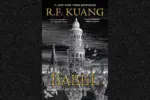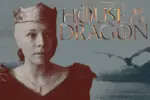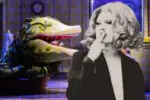Debuting in 2008, the fantasy drama series “Merlin” brought its own unique charm to British television for five thirteen-episode seasons. Maybe its charm came from a strange mix of modern speech in a vaguely medieval setting. Or rather it stems from a talking CGI dragon voiced by esteemed British actor, Sir John Hurt. The series’ charm could have come from the snappy jackets and quirky crowns they placed on the legendary King Uther, father of the greater legend, King Arthur. It would be fair to say that the series was made incredibly unique by the whimsical, often comical approach its creators took to portraying classic British myths. As someone who binge-watched the show quite recently, I take the position that much of the series’ charm radiated from its unconventional interpretation of the protagonist played by Colin Morgan—the titular Merlin.
Originating in medieval times, Arthurian myths have captivated imaginations for centuries. Characters such as Merlin have been reinvented time and time again through countless adaptations. Most portrayals of Merlin look alike; they feature Merlin as an old wizard who serves as a mentor and guide for the young King Arthur as he rises to greatness. We see this characterization clearly in the 1963 Disney film “The Sword in the Stone,” for example. This vision of Merlin as an old man has such a strong grip on Arthurian-based media because it dates back to original medieval stories.
Medieval author Geoffrey of Monmouth wrote several books under the title “The History of the Kings of Britain” where tMerlin was first popularized. In Geoffrey’s stories, Merlin was a close associate of King Uther, relatively close to Uther’s age or older. In these stories, Merlin did not directly interact with Arthur. But, as the character’s popularity grew over time, it was only natural for later generations of writers to imagine what Merlin and Arthur could accomplish together.
Though Arthur is a central figure of the British myths that continue to inspire so many new stories, the 2008 “Merlin” series was not the first story to feature Merlin as the central protagonist. In fact, BBC explored the idea of a Merlin-centered story in their 1998 miniseries of the same name. The first part of the miniseries followed Merlin as a younger man who offered important guidance to King Uther. The second part followed Merlin as he served as a tutor and guardian of King Arthur. The 2008 series took a similar approach to its 1998 predecessor by setting the focus on Merlin, but a few revolutionary changes were made. First, Merlin and Arthur were both teenagers and Merlin was Arthur’s servant. Most importantly, Merlin was an overlooked “nobody” as he was forced to hide his magical talents to avoid being executed for them. He even had to hide them from Arthur.
In the 2008 series, Merlin wasn’t doing much tutoring or mentoring at all. In fact, he often had to endure lectures from the spoiled, demanding Prince Arthur who was constantly amazed by how bad Merlin was at his job. When he wasn’t with Arthur, Merlin was tutored by King Uther’s trusted physician and friend, Gaius—a character that more closely resembled the medieval portrayals of Merlin.
The creators of the “Merlin” series set out to craft an origin story for the character that centered around his humble beginnings. As narrator John Hurt spoke in the pilot’s opening monologue, “No young man, no matter how great, can know his destiny.” Young Merlin was constantly ordered around, clumsily striving to meet the demands of the people he served.This made it hard to imagine Merlin could perceive any future where his name would go down in history. His goal was to stay hidden and keep Arthur alive so, instead, his name could go down in history. This brought the legendary figure of Merlin down to earth, in a way that invited viewers to sympathize with him and root for him as an underdog. In an amazing feat, the creators of “Merlin” transformed a powerful mythological warlock into an underdog.
Working in the background as a side character in a great hero’s journey, Merlin himself was an unconventional hero. He had no physical strength to rely on and was publicly humiliated on a regular basis. During his first encounter with Arthur, Merlin attempted to come to the rescue of a servant Arthur was tormenting. He challenged Arthur to a fight, losing instantly because he couldn’t use his magic in front of him. He was thrown in jail and put on display the next day where the general public threw tomatoes at him. He came back to challenge Arthur again, this time using magic discreetly to his advantage. Still, he lost, leaving Gaius to tend to his wounds.
In the pilot episode, Merlin was not heroic because he displayed amazing strength or supernatural skills. He couldn’t back up any of his threats and he lost fights both with and without his special abilities. Rather, Merlin was a hero simply because of his bravery and selflessness, traits that drove him to defend Arthur’s old servant from Arthur’s abuse. Ultimately, Merlin saves Arthur’s life at the end of the episode with the use of magical abilities. True to his character’s nature, he instinctively risked his life to protect someone he didn’t even like.
It is Merlin’s instinct to be good, kind and helpful which brings a charming sense of innocence to his character. This characterization is reinforced with his constant display of emotional vulnerability.Watching the series myself, I first began to notice Merlin differed from other protagonists I’d seen in the past when I realized how often Merlin smiled. He unabashedly showed his amusement at his friends’ jokes and some of the awkward, precarious situations he found himself in. He was also often seen with tears in his eyes during sentimental moments. Actor Colin Morgan added these emotional nuances to Merlin’s character that went beyond words to demonstrate the depth of Merlin’s personality.
Merlin was not a loud, boastful hero. Rather, he was a quiet, humble hero who captured viewers’ hearts through small gestures. Too often, we see protagonists in the media whom fans grow to resent and criticize. Their personalities grow tiresome to viewers, leaving them to give their admiration over to side characters. The “Merlin” series is a rare case where fans seem to adore the main character. The “Merlin” creators’ idea of turning a legendary Arthurian side character into a main character paid off. As the Merlin fandom is still going strong today, Merlin lives on as an underdog hero for fans to root for and celebrate.

















